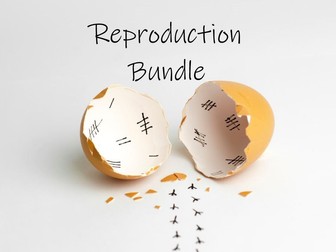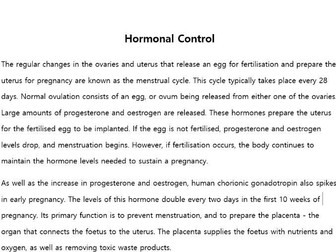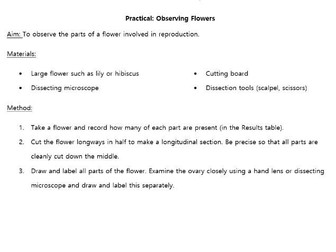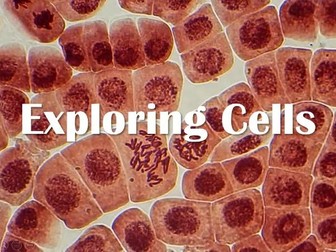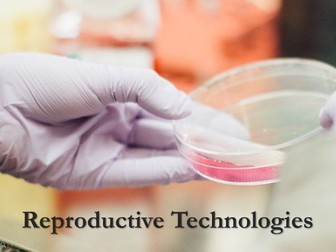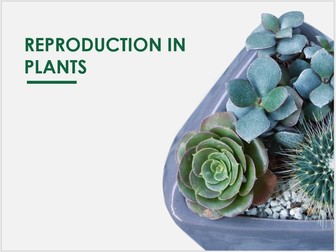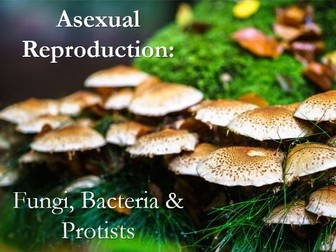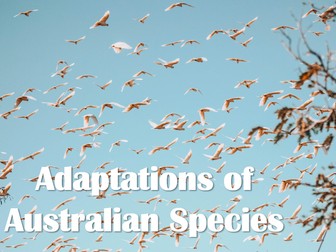HSC Biology - Reproduction Resource Bundle (Module 5: Heredity)
<p>Includes :</p>
<ol>
<li>PowerPoint covering asexual reproduction in fungi, protists & bacteria with summary worksheet for students to complete</li>
<li>PowerPoint covering sexual & asexual reproduction in plants with summary worksheet for students to complete on asexual reproduction methods</li>
<li>Optional cut and paste sheets to complete above summaries (great for students who require extra support or who are just a little slower at writing!)</li>
<li>Practical worksheet for flower dissection (including introduction on sexual reproduction in plants, and discussion questions)</li>
<li>PowerPoint covering reproductive technologies with summary worksheet for students to complete</li>
<li>Comprehension & graph interpretation worksheet covering hormone changes during pregnancy (including summary flow chart for students)</li>
</ol>
